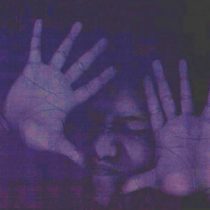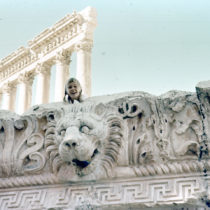- This topic has 1 reply, 12 voices, and was last updated 16 years, 2 months ago by
 nca.
nca.
-
AuthorPosts
-
July 25, 2008 at 7:30 am #177240
 Ryland FoxParticipant
Ryland FoxParticipantNick Aceto said:
RF,I understand what you’re point is and respect it. Still, just because everyone else is doing something one way doesn’t mean that is the correct way, or that there even is one. I know thisisn’t necessarily what you’re getting at, but I think it’s close. I have a quote by Paul Rand, a notable graphic artist who did the still unchanged logos for IBM and UPS (well, slightly changed maybe). The quote reads as follows:
“Trendiness is seductive, especially to the young and inexperienced, for the principal reason that it offers no restraints, is lots of ‘fun,’ permits unlimited possibilities for ‘self-expression.’ and doesn’t require conforming to the dictates of reason or aesthetics.” -Paul Rand
I have this quote in the signature line of my personal email and every once in a while I see it and re-read it, thinking about what that means to who I am doing at the moment. Not that I’m bitter 🙂 –But think about this quote when you look at some of the ASLA student awards this fall in LAM (Again, not that I’m bitter, right :). Historically, there is a HArvard GSD “look” and Penn “look” to the graphics and projects in general. I have a theory that the design isn’t typically that profound, but the graphic mood is very stylistically astute.
I would disagree that those “shapes” the other students are rendering in 3D are the forms and deign of the future, unless I misunderstood, but rather haphazard digital mastur….you get my point..
I think it would be hard to argue that computer usage in design is a trend. I suppose it is in terms of becoming increasingly common but I doubt that it is going away, so where the line is between trend and norm is I don’t know but if we haven’t passed it we will soon. Now, I don’t think that sketching will go anywhere but I do believe that there are ways of utilising technology so that it is a asset to the design process somewhere besides just visualisation.
In terms of the blobs you see being designed in studios, I don’t know if those precise shapes will be the future but the lessons, both good and bad, learned from them and the skills acquired in the process of designing them will definitely be. School is a time of testing the dictates of reason and aesthetics to see if they hold up, they definitely aren’t static and nor should they be. I personally have no desire to live at Versailles. Anyways, I like this discussion, people’s work looks really good.
July 28, 2008 at 6:29 pm #177239 Pok KobkongsantiParticipant
Pok KobkongsantiParticipantFor Hand-rendering, I would have to say Chris Grubbs (not sure how to spell his last name).
Every famous landscape architect uses him.
Hargreaves started using him years ago.
Then Pete Walker.
Even SWA!!
His rendering is superb. A master in his own style!!!July 29, 2008 at 4:59 am #177238 Leo GonzalesParticipant
Leo GonzalesParticipantHey Folks:
Excellent works you guys have posted!
In my practice timely delivery is just as important as good graphics, so my work is a product of both. I stick to the basics: line weights, good contrast, texture, light/shade and shadows. I design with a Pilot v7 pen, whether for design-process sketches of final output, and color with markers. My old boss, IPSantos, told me never to sketch with a pencil when designing, because pencil lines can be erased, and therefore ideas can be erased and forgotten. I layer tissue after tissue of sketches until I arrive at a final layout.
In the past I photocopy blackline sketches and color with markers, scan and process in photoshop afterwards. The last few years with my rendering collaboration with fellow lounger Ian Buyco, we decided to (Ian’s idea, actually) scan the blackline sketches/prints, and color with photoshop ala markers, using basic brushes on various color layers for trees, paving, roads, and such. We then apply textures to the colored plans afterwards. This technique usually just takes a couple of hours once you get the hang of it. Plus, you can improve the look of even the roughest, crooked sketches into something presentable and make it presentation-board-worthy.
Example:
July 29, 2008 at 2:11 pm #177237 ncaParticipant
ncaParticipantThanks Leo,
Funny you call “trace” “tissue” as I hadn’t heard it called that until a few weeks ago by one of the engineers at work. I have, on the other hand, heard “bumwad.”
Those renderings look really nice. Some of the posts on here, including yours, have inspired me to draw more by hand. Leo–are you drawing over cad linework/base?
July 30, 2008 at 4:45 am #177236 Leo GonzalesParticipant
Leo GonzalesParticipantYou’re welcome, Nick.
There’s a funny story behind that. I was working with Roy Wilson, an American LA/Planner a few years ago and, while we were sketching he asked me to pass the tissue. I took the box of tissue at my end of the work table and he was laughing and making fun of me the rest of the day. ‘Took me a few minutes to figure out he meant the white trace roll. Roy’s someone who’s mature but cool, curses a lot, and has a great sense of humour- you could imagine how he got the kicks out of that one. I’ll add bumwad to my little book of terms and see how my colleagues react, heheh…
Sure, I love using blackline cad print base, more so when I’m in a rush. When you use a lot of texture and overlapping lines on your pen rendering you wouldn’t notice the difference. Just keep the lines crisp and adjust the B/W contrast in Photoshop. It also helps when you alternate ruled lines with crooked hand lines; it produces good line character (i.e. hard, ruled lines for paving and hatches, and softer hand lines for trees and plants). Plus, I love extending my lines creating a “dirty” drafted drawing. My old boss said it’s not a real plan if it’s clean. Figures why that is one of the original effects in SketchUp.
I’d be happy to share more stuff with you guys. Have fun drawing. Better a pen than a mouse as an extra finger, right?
Leo
July 30, 2008 at 11:06 am #177235 Pok KobkongsantiParticipant
Pok KobkongsantiParticipantHere is my old sketch from 2004….It’s for a casino in Singapore…
August 6, 2008 at 1:39 am #177234 ncaParticipant
ncaParticipantNew Graphic…
This one had to be quick (+/- 4hrs.)…I painted the trees last year and saved them as a psd for projects like this.
 August 19, 2008 at 1:17 pm #177233
August 19, 2008 at 1:17 pm #177233stephen carreker
ParticipantHands down….Richard Scott….amazing!!
September 28, 2008 at 9:35 pm #177232 Cendra RamirezParticipant
Cendra RamirezParticipantBrian – What program did you use for the above rendering… it’s just amazing, looks like a hand rendering. Kuddos!!!
Cendra
October 3, 2008 at 3:17 pm #177231K. Alcain
Participanthey nick…awesome images. can i check out your DVD some time?
October 21, 2008 at 10:22 am #177230Boris Livancic
Participanthy there. can anyone tell me where i ca find add-ons for autocad, that will give me sings for trees, bushes and so on…. and wich of programs u use for 3-D projecting…. thanks….
November 10, 2009 at 2:00 am #177229 Jim Del CarpioParticipant
Jim Del CarpioParticipantDef., Chip Sullivan(Original), Mike Lin( Quick, stylish), Grant Reid(old school), Walter Hood(Jazzy, cool), Ed Stone(OS), Mike Martin Ink Drawings.
November 11, 2009 at 5:23 pm #177228 Trace OneParticipant
Trace OneParticipantthe old days – Ed Bye’s landscape plans were incredible – ink on mylar – unique style – anyone remember him? “Art Into Landscape” is his book, with his plans in it..
and Hann/Olin perfected prisma on trace, with a closetful (literally) of burnt umber prisma’s, and six to nine foot long trace plans – incredibly beautiful.. mostly yellow trace..every brick drawn with love, (and student labor)
personally I hate the collage style popular now..really does not do a good job depicting the plan..
but old style watercolor rendering, like Shepherd and Jellicoe – that to me is the best..actually I like FLWright style, of course, also..
November 11, 2009 at 6:38 pm #177227 Trace OneParticipant
Trace OneParticipantthat is freakin’ gorgeous, Nick, I love it!
November 11, 2009 at 6:47 pm #177226 Jim Del CarpioParticipant
Jim Del CarpioParticipantDoes Monsur Ma have a web page to see and study his graphics?
-
AuthorPosts
- You must be logged in to reply to this topic.


